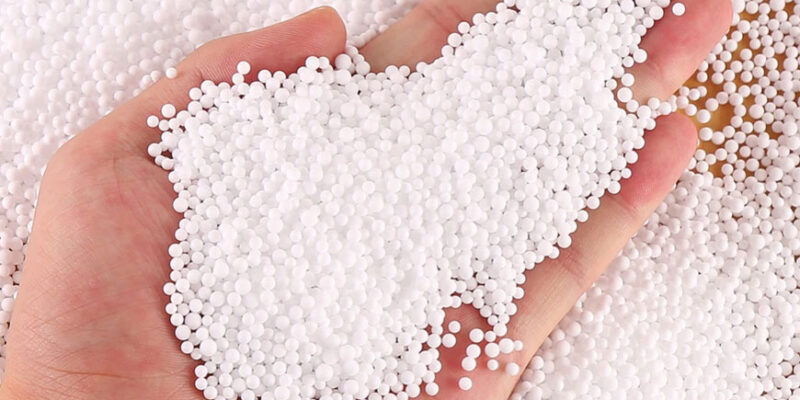
Ammonium sulfate, a widely used chemical compound, is known for its versatility and broad range of applications across multiple industries. Composed of nitrogen and sulfur, two essential elements for life, ammonium sulfate plays a vital role in areas such as agriculture, food production, water treatment, and even pharmaceutical research. Its chemical formula, (NH₄)₂SO₄, consists of ammonium ions and sulfate ions, making it water-soluble and easy to apply in many processes. In this in-depth guide, we will explore the common uses of ammonium sulfate, along with its benefits and significance in various industries.
1. Agriculture: Fertilizer and Soil Amendment
Ammonium Sulfate as a Nitrogen Fertilizer
One of the primary uses of ammonium sulfate is in agriculture, where it serves as a highly effective nitrogen-based fertilizer. Nitrogen is a key nutrient that plants need for growth, as it is a critical component of chlorophyll and amino acids. Farmers use ammonium sulfate to supply their crops with a readily available source of nitrogen, which supports overall plant health, boosts photosynthesis, and improves yield.
It is particularly valued for its ability to provide nitrogen in a stable form that does not easily volatilize into the atmosphere, making it an ideal fertilizer for crops in regions with higher temperatures or where other forms of nitrogen may degrade quickly. This stability ensures that plants receive a consistent supply of nitrogen over time, which is critical for maximizing growth and productivity.
Sulfur Supplement for Soil
In addition to nitrogen, ammonium sulfate also supplies sulfur, another essential nutrient for plant development. Sulfur is vital for the synthesis of certain amino acids and vitamins, and it helps strengthen cell walls, making plants more resistant to pests and diseases. Crops like canola, onions, garlic, and legumes, which have a high sulfur demand, particularly benefit from the addition of ammonium sulfate to the soil.
Soil Acidification
In alkaline soils, in particular, It is applied as a soil amendment. It has an acidifying effect, which helps lower the pH of the soil. This is beneficial in regions with naturally high pH levels, where many essential nutrients may become less available to plants. By lowering the pH, ammonium sulfate makes nutrients such as phosphorus, iron, and zinc more accessible to crops, improving their overall health and productivity.
2. Food Industry: Baking and Processing
Dough Conditioner in Baking
In the food industry, ammonium sulfate is commonly used as a dough conditioner in commercial baking. It helps to improve the strength and elasticity of dough, allowing bread and other baked goods to rise more evenly and have a better texture. This is especially useful in large-scale bread production, where consistency and quality are key.
Yeast Nutrient for Fermentation
Ammonium sulfate serves as a nutrient for yeast in various fermentation processes. In baking and brewing, yeast requires a source of nitrogen to multiply and carry out the fermentation process effectively. It provides this nitrogen, enhancing yeast activity and resulting in improved fermentation efficiency. This is particularly important in the production of bread, beer, and other yeast-fermented products, where consistent yeast performance is crucial for achieving the desired results.
Food Additive
In some food applications, ammonium sulfate is used as a food additive, primarily as an acidity regulator. It is generally regarded as safe when used in small quantities and can be found in some processed foods to stabilize acidity levels.
3. Water Treatment: Coagulation and Purification
Coagulant Aid in Water Treatment
It is used as a coagulant aid to enhance the removal of suspended solids, bacteria, and other contaminants from water. In the coagulation process, chemicals are added to water to cause impurities to clump together into larger particles, which can then be easily removed by filtration or sedimentation. Ammonium sulfate is added to improve the efficiency of this process, ensuring cleaner, safer drinking water.
Chloramine Formation in Disinfection
In addition to coagulation, ammonium sulfate is used in the formation of chloramine, a disinfectant commonly used in water treatment plants. Chloramine is created by combining chlorine with ammonia, and it is preferred over chlorine in certain cases because it produces fewer harmful byproducts. Ammonium sulfate provides the ammonia needed for chloramine formation, helping ensure effective water disinfection while minimizing potential health risks.
4. Pharmaceutical Industry: Protein Purification
“Salting Out” for Protein Purification
In the pharmaceutical and biotechnology industries, ammonium sulfate is used in a process called “salting out” to purify proteins. This technique takes advantage of the fact that proteins become less soluble in the presence of high salt concentrations. By adding ammonium sulfate to a protein solution, scientists can selectively precipitate proteins out of the solution, allowing them to be isolated and studied or used in medical applications.
This method is commonly used in the early stages of protein purification, where large quantities of protein need to be separated from a mixture of other molecules. Ammonium sulfate is favored in this process because it is highly soluble in water and does not denature proteins, preserving their structure and function.
5. Textile Industry: Dye Fixation
Dye Fixative in Textile Dyeing
It is also used in the textile industry, particularly in the dyeing process. It acts as a fixative, helping dyes adhere to fabrics more effectively. By adding ammonium sulfate to the dye bath, textile manufacturers can ensure that colors are more vibrant and long-lasting. This is especially important for fabrics that undergo frequent washing, as it helps prevent colors from fading or bleeding over time.
The use of ammonium sulfate as a dye fixative is especially beneficial for fabrics like cotton and wool, which can be more difficult to dye evenly. Its ability to improve the binding of dyes to these materials makes it a valuable tool for achieving high-quality, durable textiles.
6. Flame Retardant Applications
Fireproofing Materials
Another important use of ammonium sulphate is in fireproofing and flame retardant applications. It is often added to materials such as textiles, wood, and paper products to reduce their flammability. When exposed to high temperatures, ammonium sulfate releases ammonia and sulfur dioxide, which can help suppress the spread of flames by diluting combustible gases and reducing the availability of oxygen.
This property makes ammonium sulfate a useful component in fire-resistant fabrics, insulation materials, and building products, where flame retardancy is critical for ensuring safety in residential, commercial, and industrial settings.
7. Manufacturing Chemicals: Ammonium Alum Production
Ammonium Alum in Industrial Processes
Ammonium sulfate produces ammonium alum, a compound with numerous industrial applications. Ammonium alum is used in water purification, paper manufacturing, and textile dyeing, among other processes. It acts as a coagulant and helps bind particles together, making it easier to remove impurities from water and other substances.
Conclusion
Ammonium sulfate is a highly versatile compound with widespread applications across various industries. In agriculture, it serves as a crucial nitrogen and sulfur fertilizer that enhances crop yields and improves soil health. It acts as a dough conditioner and yeast nutrient in the food industry, supporting efficient baking and fermentation processes. Its role in water treatment ensures clean and safe drinking water, while its use in pharmaceuticals aids in protein purification. Ammonium sulfate is also a key player in the textile industry, fireproofing, and chemical manufacturing, where its unique properties provide value in a range of products and processes











